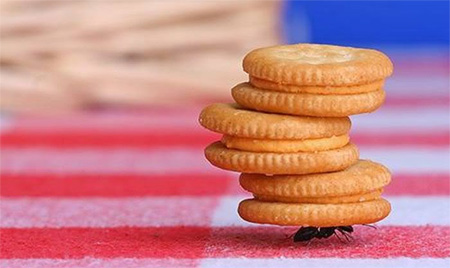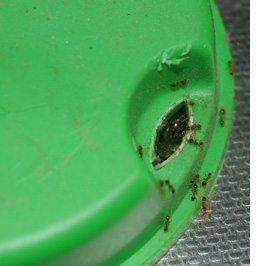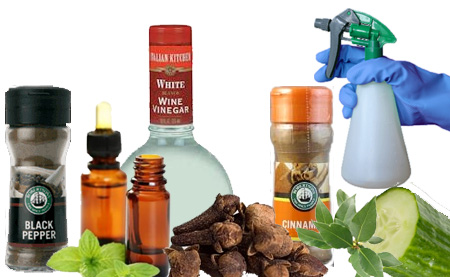Ants driving you out of your home?
Over the past couple of weeks, every morning I wake up to a kitchen sink that is covered in an army of ants. They may be good for the garden, but few of us want an ant colony in our homes. When trying to get rid of ants, it’s helpful to first have a basic understanding how ants live and thrive:
In an ant colony worker ants make up approximately 10% of the colony and it’s their job to go out and collect food then bring it back to feed the rest of the colony. If it’s getting cold outside, they also like to settle in to find shelter.
Ants leave a scented trail for each other so they can easily find their way back to the jackpot (the food source in your home). Trails can be both visible and invisible to human eyes, but ants can follow the trails with ease. Washing away these trails will confuse them and make it more difficult to find their favourite places. Making your own ant repellant will deter ants and force them to look elsewhere.
I purchased ant traps about three months ago and laid them at strategic locations where ants tended to appear.
Since then I have watched the ants come and go, stopping on the ant trap, and then proceeding to their intended destination and back home.
It's as if they are taunting me... "Is that the best you can do!"
There has to be a more effective - and safer - way to keep the little buggers out of my kitchen. Every night I wash and dry the kitchen countertops, make sure to sweep the floor and put away any food, and every morning I am greeted by the site of ants.
Time to look at more traditional remedies for getting rid of ants:
Homemade spray recipes
Clean countertops and surfaces well with one of the cleaners below. They can also be used to spray ants directly.
- Vinegar
- Vinegar & Water (50/50 mix)
- Cider Vinegar & Water (50/50 mix)
- Essential oils: Peppermint, Lavender, Eucalyptus, Tea Tree Oil
Control ants in the home
The first line of defense is making your home unattractive to ants. Make sure to wipe up spills immediately and wipe off counters, tables and stovetops regularly leaving no crumbs behind. Sweep and wash floors regularly. Don’t leave dirty dishes around the house or in the sink. Keep dry foods (like flour, cereal, sugar, oats, etc.) in air tight containers. Take out garbage regularly and wash out all food packaging before putting in the bin.
Although a sloppy home will attract ants, having ants in your home doesn’t necessarily mean you’re a poor housekeeper - the ants could be after water. If it’s dry outside and there’s not a nearby water source, ants will be in your home on the hunt for water. They’ll find it in houseplants, sinks and drains, pet water dishes and cups left out containing liquids.
Natural ant repellents
Look for cracks or holes in the house where the ants are coming from, spread any of these repellents around the holes (or combination of items on the list). Also spread around window sills, along baseboards, in corners and outside doors. The theory is that since ants are repelled by these items, they’ll turn back. Success of the repellents can depend on the species of ants in your home.
- Cinnamon
- Ground Black Pepper
- Bay Leaves
- Whole Cloves
- Red Chili Powder (sprinkle liberally or make a paste with water)
- Used Coffee Grounds
- Sage
- Cucumber Peels
- Essential Oils: Peppermint, Lavender, Eucalyptus. Swab at entrance points.
The ants could be attracted to your pet’s food dish, a potted plant or dish of candies. Either keep food sealed until needed or surround it with a water barrier so the ants can’t get to the food. Fill a baking pan with water and set the pet food dish (or potted plant, etc.), in the middle. Mixing in a little liquid dish detergent with the water will be a strong repellent as well as prevent the water from becoming a water source for the ants.
If it’s a potted plant that’s infested with ants, repot the plant in a fresh pot of soil, washing roots clean of previous soil. You can try submerging the pot in a bucket of water for about 15 minutes to make the ants flee, but this won’t remove larvae that may be present.
If you prefer encouraging the ants to move elsewhere instead of killing them, make your home their last choice for foraging by using the above ant control methods and tips.



